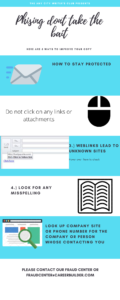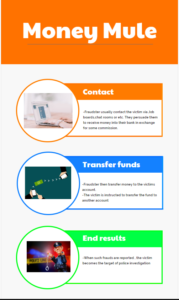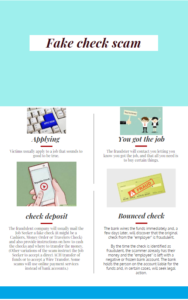25 essential job search tips to take into the new year
Your guide to landing the right job for you.
As we wrap up 2020 and head into the busiest job hunt season of the year (January), these 25 job hunting tips will set you up for success to land your next role.
And why 25 you might ask? We just kicked off a 12-month celebration to mark inclusion 25th anniversary!
For 25 years, we’ve helped job seekers connect to employers, and here we’re sharing some of that wisdom.
Your job hunt basics:
1. Create a resume. Write your own resume from scratch – or let AI do it for you. The inclusion AI Resume Builder can pre-populate all of the basics for you, based on billions of data points, so all you have to do is add your own flair.
2. Use your cover letter to add personality. Your resume should be a succinct highlights reel of relevant accomplishments, and your cover letter should show off why you’re a good fit for that role.
3. Maximize your job seeker profile and online professional presence. Stand out from the pack, connect with employers and get hired for the right role.
4. The basics of a successful interview: dress nicely (as if you care about the role), come prepared, be friendly and professional, and ask good questions. (Pro tips for job interviews in a remote work world.)
5. Get paid what you deserve. These do’s and don’ts for successfully negotiating your salary can help your career down the line.
Where to start looking for a job:
6. Follow the money – and the opportunities. Take a look at what’s been growing (or at least holding steady) in 2020, including best jobs in hotspots and key industries.
7. Don’t sit around waiting for the perfect job opening. Here’s how to show a company you’re interested, without cold-emailing or pitching, and to position yourself for roles that haven’t been posted yet.
8. Consider your schedule along with your financial needs. Temporary, seasonal and holiday jobs are popular this time of year, and temporary roles in general are on the rise. If your schedule allows for it or you need less-traditional office work, you might think about looking for temporary work.
9. Sign up to receive alerts from companies you’re interested in. You’ll be the first to know about any new jobs.
10. Add your resume to a job board. Easily apply to roles you want and conveniently save your applications in one spot.
Job search tools:
11. Job boards can serve as an extension of your personal network. Be visible to thousands of employers by uploading your resume to a job board. This is an important first step for building your online presence, easing the job application process and serving up your resume to hiring managers who are searching. Make sure you have more than one version saved in your profile, each tailored to different positions or to highlight certain skills.
12. Tailor and optimize your resume. Maybe you’ve mastered the basic document, but you should have multiple versions saved to your profile. Resume builders and profile functionality can connect you with employers faster.
13. Use your job seeker profile to show off your skills. Don’t worry so much about whether your job title is an exact match or is on a specific career path. If you have the skills to do a job, tweak your resume to reflect that and apply!
14. Take your job search on the go (or from the couch) with an app. Search for jobs near you at any given moment, and filter them by location, part-time jobs, hourly wage and work from home opportunities
15. Get specific with filters. Military veterans can search by their military occupation code to find job matches. All job seekers can search by employment type, application type, work from home – all of the unique ways your job should fit your life.
For recent and soon-to-be graduates:
16. Stay flexible, find a company you want to work for, apply your skills and keep building your career path. Read more about graduating into a recession.
17. Continue to improve your skills from home. There are so many ways to continue learning online, from course platforms to free podcasts and video tutorials. Here are 5 tips to find entry-level jobs after graduation.
18. Find yourself – and show off! Think about what makes you unique and what you bring to the table. Hiring managers and employers want to see why you, specifically you, are good for them. Show off the skills that set you apart from other candidates.
19. Learn about jobs you can land right out of high school. These top 10 roles pay well and don’t require an additional degree.
20. Search for roles by your training level or start looking ahead. We break down roles and industries by pay and the level of training you might need.
From inclusionP employees:
21. “Find a mentor.” -Tonya Mompoint, Vice President of our Global Project Management Office. Read more from Tonya.
22. “Get out of your comfort zone!” -Anna Pena, Senior Release Manager. Read more from Anna.
23. “Be vocal about what you want and prove it.” -Emma Iglesias, B2B Marketing Director. Read more from Emma.
24. “Don’t be afraid to take risks or fail and learn fast.” -Yannick White, Senior Sales Director in our London, UK office. Read more from Yannick.
25. “Plan for 10 years, implement in six months. You will absolutely fail, but you’ll be closer to your goal.” -Samir Shaikh, Director of Engineering in our Noida, India office. Read more from Samir.





